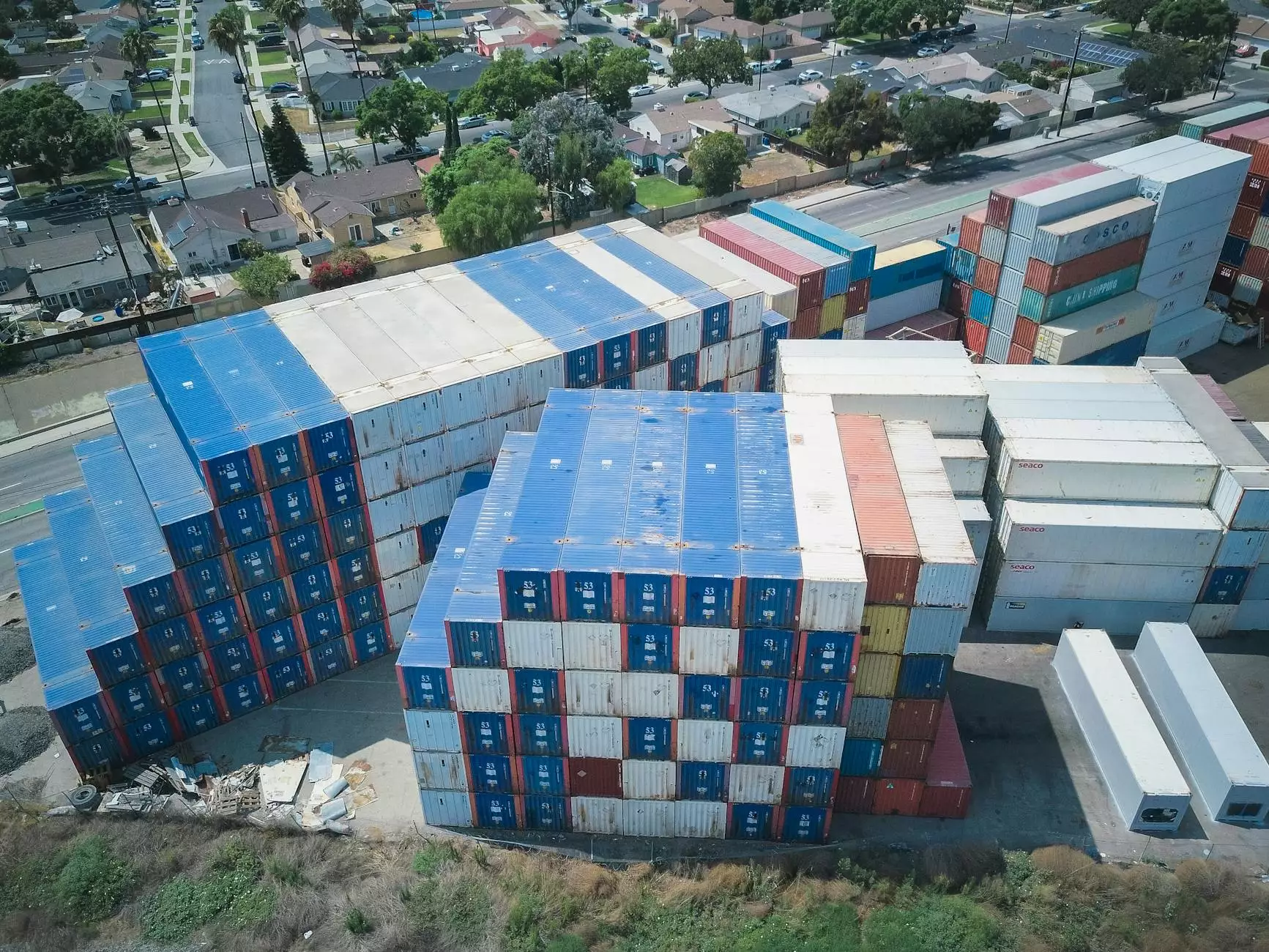Understanding FTL Freight Quotes: Your Ultimate Guide

In the realm of logistics and transportation, ensuring that you have the best possible shipping solutions is critical for your business's success. One of the most important aspects of this process is obtaining FTL (Full Truckload) freight quotes. In this comprehensive guide, we will explore what FTL freight quotes are, their benefits, how to obtain them, and much more. With the right knowledge, you can streamline your shipping needs and save money along the way.
What is FTL Freight?
FTL freight refers to a shipping method where an entire truck is dedicated to transporting a single shipment from one location to another. This method is particularly beneficial for businesses with sufficient shipment volume, as it allows for faster transit times and reduces the chances of cargo damage or loss due to multiple stops.
Benefits of Using FTL Freight
- Speed: Since FTL shipments travel directly to their destination without multiple pickups or drop-offs, they typically enjoy faster delivery times.
- Cost-Efficiency: For businesses that have large shipments, FTL can offer a more cost-effective solution compared to shipping multiple LTL (Less Than Truckload) shipments.
- Reduced Risk of Damage: With FTL shipping, your goods are handled less frequently, reducing the likelihood of damage during transit.
- Dedicated Space: You have complete control over the truck space, which means you can maximize the use of available space for your goods.
- Simplified Logistics: Managing one shipment is generally more straightforward than coordinating multiple smaller shipments.
How to Obtain FTL Freight Quotes
Now that we understand what FTL freight is and its benefits, let’s delve into how you can obtain FTL freight quotes effectively. Here are the steps you should consider:
1. Determine Your Shipping Needs
Before reaching out for quotes, it’s important to have a detailed understanding of your shipping needs. Consider the following:
- Weight of the Shipment: Know the total weight of the goods you'll be shipping.
- Dimensions: Measure the length, width, and height of your shipment.
- Destination and Origin: Provide precise locations as they can significantly affect the shipping cost.
- Delivery Timeline: Are you in a hurry, or can you afford to be flexible with timings?
- Type of Goods: Certain goods, such as hazardous materials, may require special handling and affect the price.
2. Research Freight Carriers
Once you have an understanding of your shipping requirements, the next step is to research potential freight carriers. Consider both national and local companies, and look for:
- Reputation: Read reviews and testimonials to gauge reliability and quality of service.
- Services Offered: Ensure they offer FTL services and have the necessary equipment.
- Insurance: Check what types of insurance and liability coverage they provide.
- Customer Service: Evaluate their responsiveness and willingness to help with queries.
3. Request Quotes
Once you have a list of potential carriers, the next step is to request FTL freight quotes. Be sure to provide the details gathered in step one to get the most accurate quotes. You can often request quotes online, via email, or over the phone.
4. Compare Quotes
When you receive the quotes, take time to compare them based on several criteria:
- Cost: While pricing is important, the cheapest option may not always be the best.
- Delivery Times: Look at how each carrier’s delivery times align with your needs.
- Service Quality: Consider the value of customer service, reliability, and reviews.
- Hidden Fees: Be aware of any additional charges that could increase the overall cost.
5. Negotiate Terms
Don’t hesitate to negotiate with carriers. If you have multiple quotes, you can use them to leverage better rates or services. Building a relationship with freight providers can also lead to discounts or loyalty benefits in the future.
Factors That Influence FTL Freight Quotes
Understanding the various factors that impact FTL freight quotes will help you make more informed decisions when it comes to logistics planning. Here are the key considerations:
1. Distance
The distance between the origin and the destination is one of the most significant determinants of freight costs. Longer hauls typically result in higher rates due to increased fuel and labor costs.
2. Fuel Prices
Fuel prices fluctuate regularly and can have a major impact on freight quotes. Be aware of current fuel surcharges that carriers may apply to their rates.
3. Weight and Dimensions
Shipments that are heavier or larger than average will often incur higher costs due to the increased resource requirements for transportation.
4. Seasonal Demand
Shipping rates can also vary by season. Busy seasons—such as holidays—often see increased demand for freight services, which can drive up prices.
5. Type of Cargo
Specialty cargo, such as refrigerated items or hazardous materials, may require additional handling, insurance, and compliance measures, leading to higher freight quotes.
6. Freight Class
Goods are classified based on their density, stowability, handling, and liability. The freight class assigned to your shipment will significantly affect the cost of shipping.
Tips for Reducing FTL Freight Costs
While FTL shipping can be cost-effective for larger shipments, there are strategies to reduce freight costs, making it an even better option for your business:
1. Optimize Load Capacity
Ensure the truck is fully loaded to maximize efficiency. If you can combine shipments or plan logistics around peak truck capacity, you will reduce the per-unit shipping cost.
2. Build Relationships with Carriers
Establishing strong relationships with reliable carriers can lead to better service and more competitive rates over time.
3. Utilize Technology
Many logistics companies offer software tools to optimize shipping routes and manage freight effectively. These tools can help identify cost savings you're missing out on.
4. Keep Up with Market Trends
Understanding fluctuations in the shipping market can allow you to time your shipping decisions more strategically, thereby minimizing costs.
Conclusion
FTL freight quotes play a vital role in the shipping process for many businesses. By understanding how to obtain these quotes and the factors that influence them, you can make more informed decisions that positively impact your bottom line. Remember, the key to optimized freight logistics lies in obtaining the best FTL quotes, building strong relationships with your carriers, and continually improving your shipping strategies. With the knowledge gained from this guide, your business can streamline operations, reduce costs, and improve the overall shipping experience.
For businesses looking for reliable freight solutions, consider reaching out to Freight Rate, your trusted partner in logistics. With expertise in Shipping Centers, Business Consulting, and Vehicle Shipping, Freight Rate can tailor solutions that meet your unique shipping needs.



